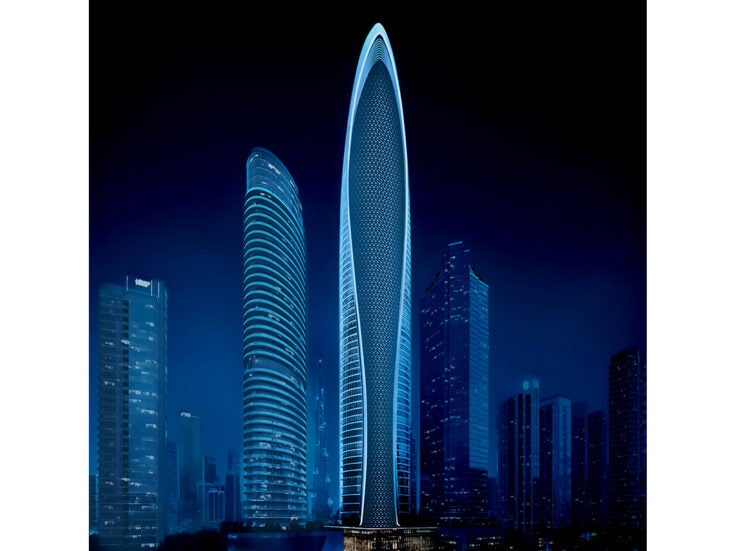
Ross Clark on why Tuscany – despite the New Labour associations – remains a model of smart conservation policy
The Times Atlas of the World lists five New Englands and eight New Londons, but they are easily eclipsed by the number of New Tuscanys. The world, if you listen to estate agents and developers, is full of them.
First, there was Umbria, then Lake Como, where George Clooney has bought a villa. There are Montenegro, Croatia and Morocco: all places where, supposedly, the wealthy are queueing up to buy properties for a song, before the property market explodes.
Within a few years, goes the argument, their rough bars, where red-necked men swill beer and sell chickens to each other, will have been reinvented as restaurants with Michelin stars. In other words, if you are wealthy and in the know, you should buy now before it is too late.
All of which is calculated to make your ordinary Tuscan villa-owner feel a little self-conscious: Tuscany, we are meant to feel, is yesterday’s playground for the rich and the powerful. It reeks of the early years of New Labour, when it seemed that anyone who owned a villa in Tuscany would vie to offer hospitality to Tony Blair – and, when our free-loading former prime minister graciously accepted, find themselves told to hop it for security reasons.
Tuscany is all about Islington circa 1997, about trade unionists-turned-Blairites scoffing sun-dried aubergines on the terrace and knocking back the Chianti as if it was Burton ale.
So is it really time for Tuscany’s 20,000 British homeowners to sell up and move to Montenegro? I would think twice if I were you. True, there are so many Britons in Tuscany that it has become the epitome of the ‘safe’ foreign destination. There is nothing edgy about Tuscany, nothing adventurous about restoring a run-down villa in a place where all the architects and many of the builders have long since learned English.
In fact, in the heart of Chiantishire you will struggle to find tumbledown villas to save: renovation in this part of the world these days tends to mean undoing the taste in bathroom furniture chosen by a Brit in the 1990s.
But if Chiantishire has become England’s 45th county, this is not without its advantages. With English manners and sensibilities have come English-style planning laws. Put simply, if there is one place in the world you can be guaranteed that open space remains open space, and that the hillside in front of you will not suddenly start sprouting nasty little concrete villas and golf courses, it is Tuscany.
True, tongues have been wagging in Tuscany ever since April, when German package holiday operator TUI announced that it had bought the decaying hamlet of Tenuta de Castelfalfi for £170 million, and plans to turn it into an upmarket holiday destination under the name ‘Toscana Resport Castelfalfi’.
‘The Germans are conquering our village,’ opined the local newspaper. But then again, the authorities could not have been more British in their demands that the developers restore the village church and respect the rural nature of the neighbourhood. This certainly isn’t going to be another Marbella. Tuscan law is incredibly strict on the renovation of old buildings.
Ruins can only be turned back into homes if they respect the original format and appearance of the buildings. Extensions and swimming pools are difficult to obtain permission for, and as for plastic windows and patio doors, forget it. As with listed buildings in Britain, you face criminal charges if you meddle with an historic building without permission.
It is the very unusual nature of the Tenuta de Castelfalfi that underlines the Tuscan approach to tourism and development. While much of the rest of the Mediterranean seems quickly to be vanishing beneath an ugly carapace of concrete, fringed with artificial white-sand beaches, Tuscany remains a country of small-scale hotels and private villas.
And that, of course, is why developers are trying to entice us away from the place. They know it is the one place where they will not get permission for overbearing golf resorts that turn their back on the local people and customs.
Take what is happening in Montenegro: there, the government has announced its intention to sell one of the country’s best beaches, eight-mile-long Veilka Plaza, to private developers – leading one estate agent to speculate that Montenegro will become a ‘new Dubai’.
I’m not sure whether his words were supposed to be a compliment or not, but I know it is a concept that will leave many people cold. Dubai is a paradise for developers and – so far – for investors. But it isn’t exactly a comparison which is likely to attract your average Tuscan resident to go dashing across the Adriatic.
Many of the Eastern European countries which are presently opening the floodgates to developers will come to regret what they have done. It may bring much-needed foreign cash in the short term, but only at the cost of destroying what outsiders want to come for: the landscape and sense of history.
There couldn’t be a stronger contrast between Tuscany and the Costa del Sol: while the former retains its charm and peace, the latter has become a by-word for tacky development. What’s more, while booming house prices along the Costas have turned to burst thanks to over-supply (more new homes were built in Spain last year than in Britain, France and Germany put together), those who have invested in property in Tuscany face no such problems, thanks to the restriction on supply.
It is easy to gripe about tourist coaches and tacky tourist shops in the back alleys of Sienna. But just try to imagine the towers of San Gimignano engulfed by high-rise apartment blocks. Thankfully, it is unthinkable. Any country wanting to pitch itself as a new Tuscany ought to take a lesson from Tuscan planners.
Bureaucratic, yes; irritating, quite often. But it is thanks to them that Tuscany remains what it is. From the point of view of preserving the setting of your villa, the more irritating the local planners the better.








